Missouri is poised to revolutionize its gaming landscape with the launch of legal sports betting on December 1, 2025. As the state’s gaming commission prepares to award licenses, a crucial distinction has emerged between two types of permits: tethered and untethered. This dichotomy will significantly impact the sports betting industry, as companies like bet365, BetMGM, and Fanatics have already applied for tethered licenses, while DraftKings, FanDuel, and Circa Sports have thrown their hats into the ring for untethered licenses.
Missouri Sports Betting Licenses
The Missouri Gaming Commission (MGC) will award 12 tethered licenses, which require sportsbooks to partner with a professional sports team or brick-and-mortar casino, sharing revenue with their market access partner. In contrast, untethered licenses, limited to just two, allow sportsbooks to operate independently without a partner or revenue sharing obligations. According to Dr. Rachel Kim, a gaming industry expert, “The tethered license model can provide a steady revenue stream for sportsbooks, but the untethered model offers more flexibility and autonomy, which can be a significant advantage in a competitive market.”
Understanding Tethered and Untethered Licenses
To navigate this complex landscape, it’s essential to understand the differences between tethered and untethered licenses. Tethered licenses require sportsbooks to form partnerships with established entities, such as the St. Louis Cardinals or Century Casinos, which can provide valuable market access and brand recognition. However, this partnership comes with the obligation to share revenue, which can eat into a sportsbook’s profit margins. Untethered licenses, on the other hand, offer sportsbooks the freedom to operate without a partner, allowing them to retain all revenue generated.
Key Considerations for Sportsbooks
When deciding between a tethered and untethered license, sportsbooks must consider several factors, including:
- Market access: Partnering with a professional sports team or casino can provide instant brand recognition and access to a loyal customer base.
- Revenue sharing: Tethered licenses require sportsbooks to share revenue with their market access partner, which can impact profit margins.
- Autonomy: Untethered licenses offer sportsbooks the freedom to operate independently, making decisions without needing to consult a partner.
As noted by a study published in the Journal of Gaming Studies, “The decision to pursue a tethered or untethered license depends on a sportsbook’s business model, target market, and revenue projections.” The study’s author, Dr. John Lee, added, “Sportsbooks must carefully weigh the benefits and drawbacks of each license type to ensure they’re making an informed decision that aligns with their overall strategy.”
Applicants and Market Access Partners
The window for tethered license applications is still open, and several sportsbooks have already applied, including bet365, BetMGM, and Underdog. PENN Entertainment, which owns ESPN Bet, is likely to “partner” with itself, as the company owns two casinos in the state. Caesars and Bally Bet, which operate brick-and-mortar casinos in Missouri, are also expected to apply for tethered licenses. On the untethered front, DraftKings, FanDuel, and Circa Sports have submitted applications, with the MGC set to announce the two successful applicants on August 15.
Expert Insights
According to Tom Bradley, a gaming industry analyst, “The untethered license process is likely to be highly competitive, with DraftKings and FanDuel being the favorites to secure the two available licenses.” Bradley noted, “Circa Sports, although a smaller player, should not be counted out, as they have a strong reputation and a loyal customer base.” Dr. Kim added, “The outcome of the untethered license process will have significant implications for the Missouri sports betting market, as it will determine which sportsbooks can operate independently and which will need to form partnerships to access the market.”
As the sports betting landscape in Missouri continues to evolve, one thing is certain: the launch of legal sports betting on December 1, 2025, will mark a significant milestone for the state’s gaming industry. With several sportsbooks already applying for licenses, the competition is heating up, and the stakes are high. As the MGC awards licenses and sportsbooks begin to operate, Missourians can expect a wide range of betting options and a new era of gaming entertainment. The question on everyone’s mind is: which sportsbooks will emerge victorious in the pursuit of tethered and untethered licenses, and how will this impact the future of sports betting in the Show-Me State?



